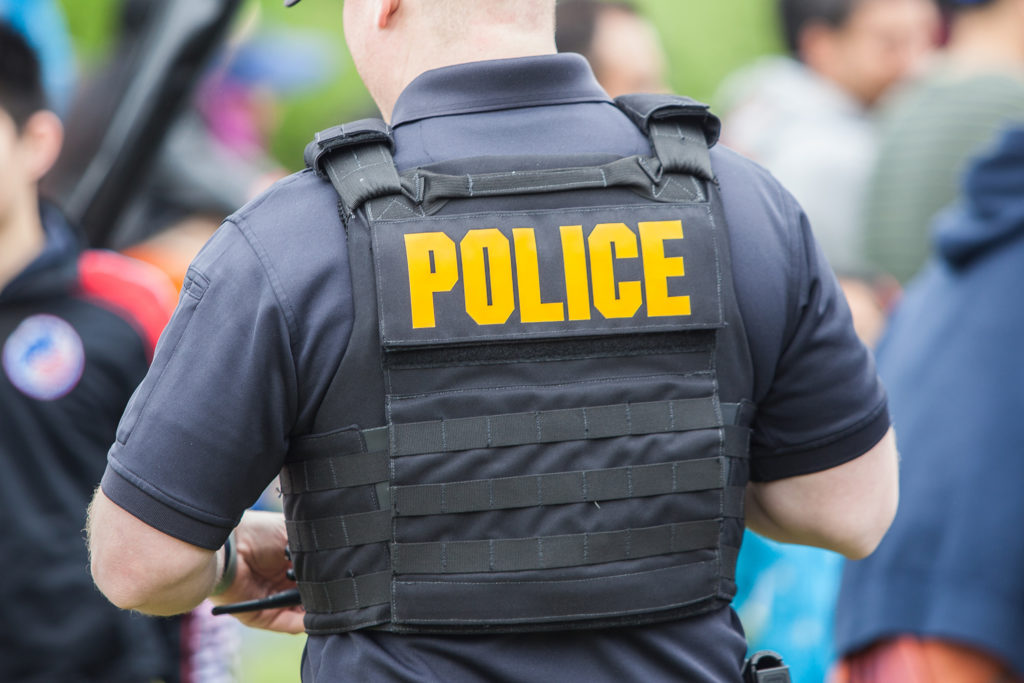Cleveland Juvenile Defense Attorneys
ServicesWhen your child’s future is on the line, choosing the right attorney can be a life-changing decision. The consequences of conviction as a minor can include juvenile detention, expulsion from school, academic decline, and loss of future opportunities. Our Juvenile Defense Attorneys have over 20 years of experience defending minors, with a focus on cyber crimes and sexual offenses. We help you navigate the court system and ensure that your child or teen achieves the best possible result.
Get in Touch With Us Today
What is the role of a Juvenile Defense Attorney in Court?
Cleveland juvenile defense attorneys help shield and protect minors and their families from the many complications that arise throughout the Juvenile Criminal Justice Process. In addition, our team helps navigate any parallel school disciplinary hearing.
Important to Know:
Overview of The Juvenile Criminal Justice Process

Need more information on what to expect?
Important to Know
Police Encounters: What Students Should Know
About nine in 10 public campuses (92%) and four in 10 private campuses (38%) used sworn police officers in the 2011-2012 academic year; most (86%) had the power to make arrests beyond campus boundaries.
These trends make it critical that students know what to do when they find themselves on the receiving end of a police inquiry. Students are particularly vulnerable, as they may not understand the situation’s gravity or how to handle it. Learn what students should do when approached by the police.
Important to know:
Juvenile Defense Frequently
Asked Questions
My child and I do not live in Ohio. Can you help us?
We can petition a court for permission to work in conjunction with a licensed attorney in the state in which the case is being prosecuted.
In the court system, who is considered a juvenile?
Generally speaking, a juvenile is anyone under the age of 18 years of age.
What should my child do if the police try to question my juvenile child?
Regardless of whether your child is in high school or college, parents must talk to children about how to navigate police encounters. Just because the police want to speak to your child, your child does not have to participate in a conversation. Parents should advise children to always be polite and cooperative. However, before having a detailed discussion with police, children should ask to have a local juvenile defense lawyer present. Children should be instructed to tell police, “I have been taught not to answer police questions without speaking to a lawyer.”
Do school administrators have to call parents before police question students?
School administrators are not required to notify parents when police want to question students at school. Most of the time, school administrators will question students first and call parents later. It is important that parents explain to children that, just like adults, they have the right to remain silent. If a teacher or police officer suspects that a student committed a crime, the student should ask to have a lawyer present before any conversation proceeds. The student should not lie or engage in any detailed conversation.
Can school administrators search my child’s locker or backpack?
Ohio Revised Code Section 3313.20 addresses this question. Generally speaking, if school administrators have reasonable grounds for suspecting that a student broke the law or school rules, they can conduct a search. However, the search must be conducted in a reasonable way based on the infraction in question.
Are child pornography cases prosecuted in state court or federal court?
Child pornography cases can be prosecuted in state and federal court. When juveniles are prosecuted for child pornography offenses, the cases are handled in state court. Federal courts do not handle juvenile criminal cases.
Do you only represent accused students?
Historically, we represented respondents. However, in more recent years, our practice evolved to represent complainants and respondents given the demand for our services.
What should my child do if the police ask for their phone?
Unless the police have a warrant to seize the phone, your child should not voluntarily hand over the phone.
Can a child be searched by the police?
The police cannot search a person, regardless of age, unless they have a warrant. However, there are many exceptions. For example, if the police believe that you have a weapon, they can frisk you. Or, if the police have just arrested you, they can frisk you. If the police ask to search you, let the police know that you do not consent to the search, but do NOT resist the search.
What is sexting?
Sexting refers to sending and receiving text messages with nude or semi-nude photos or videos.
Is sexting a crime?
Depending on the age of the person depicted in the photo, sexting may be a crime. In the state of Ohio, any nude or semi-nude photo of an individual under the age of 18 could potentially constitute child pornography. The age of the recipient of the photo is not taken into consideration under the law. So, in Ohio, if a high school student circulates nude photos of a 15– year-old classmate, the photos are illegal and both the student who sent the photos and the student who received the photos could be prosecuted.
How does sex offender registration work in Ohio?
Under current Ohio law, the offense of conviction determines whether the offender must register as a sex offender. A statute identifies the crimes that are subject to sex offender registration. There are three tiers of registration in Ohio. Tier 1 requires registration for 15 years, or 10 in certain instances (with in– person registration once a year); Tier 2 requires registration for 25 years (with in– person registration every 180 days); and Tier 3 requires lifetime registration (with in– person registration every 90 days).
Not all sex offenders are subject to community notification. Tier III offenders are subject to community notification, which means that whenever the person initially registers or moves to a new address, any neighbors within a 1,250– foot radius will be notified.
Failure to register as a sex offender is a felony of the 5th degree if the underlying offense is a felony.
Can juveniles be forced to register as sex offenders?
Generally speaking, the law looks at the age of the offender and whether the offender has any prior sex offense convictions. Ohio’s Juvenile Sex Offender Registration and Notification law is contained in Ohio Revised Code 2152.82 and 2152.83. Juveniles 13 years old or younger are not required to register. When sentencing juveniles, judges have more discretion to decide whether to imposes sex offender registration as part of a sentence.

